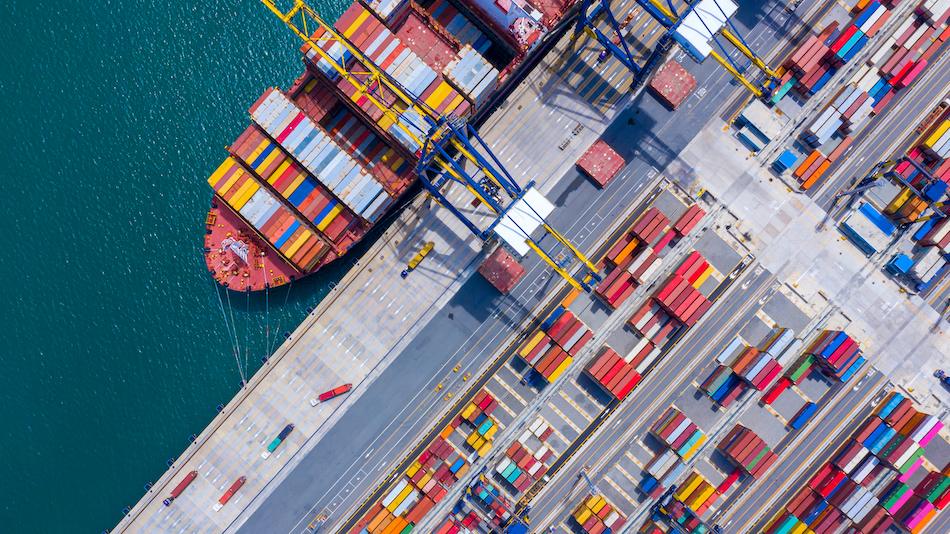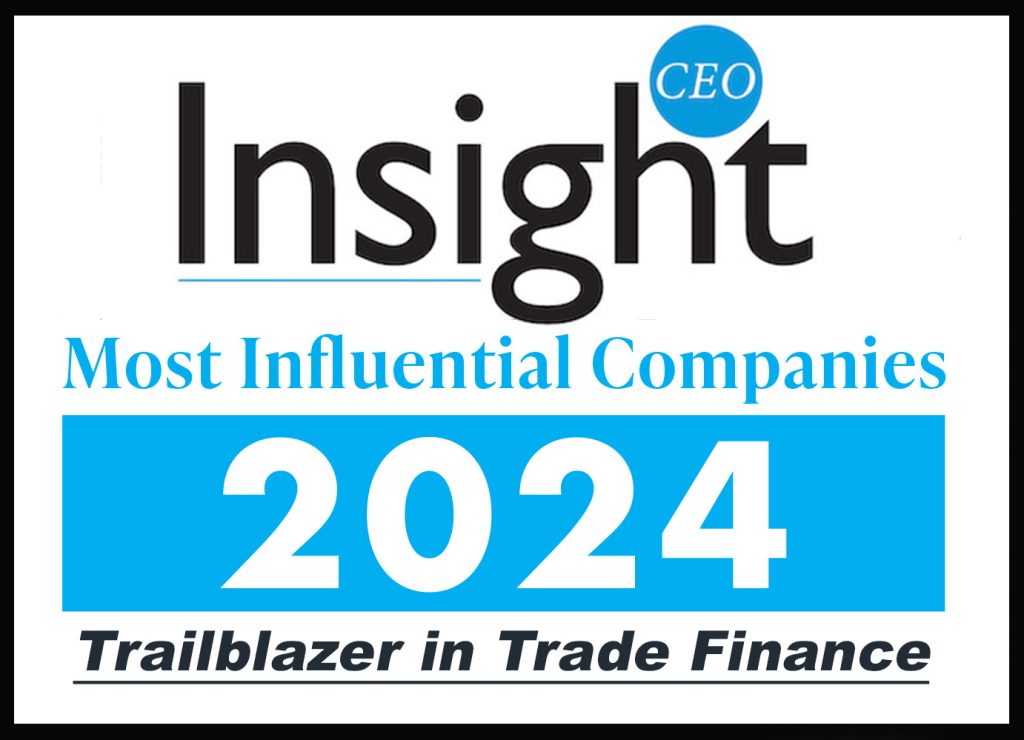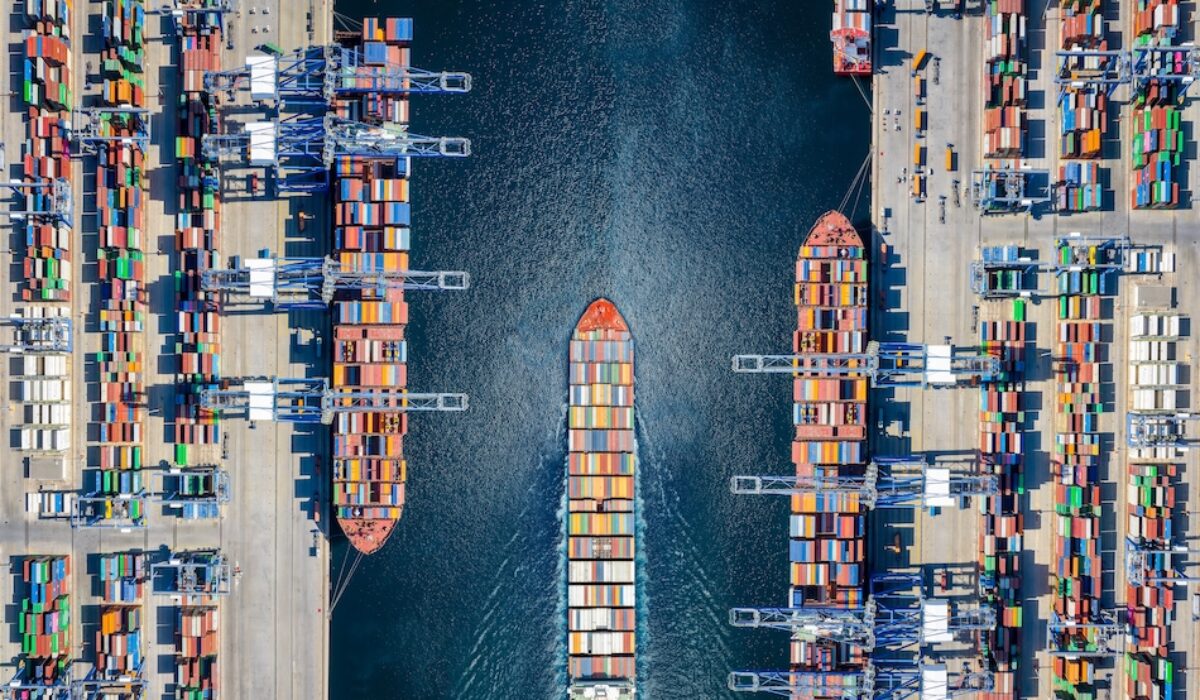Driving Innovation in Trade Finance: Euro Exim Bank’s Journey and Future Vision
Dr. Graham Bright, Head of Compliance and Operations, Euro Exim Bank Ltd discusses the evolving world of trade finance, the importance of innovation in addressing global trade challenges, and how Euro Exim Bank is fostering growth and efficiency in emerging markets.

JH: Congratulations on the Trailblazer in Trade Finance Award! What does this recognition mean for Euro Exim Bank, and how does it reflect your commitment to innovation in trade finance?
Dr. Graham Bright: We are always delighted to be acknowledged and recognised for our services with accolades and major awards, and this is testament to the commitment of staff and our specific business model, assisting tier 2 and 3 corporates and SMEs through innovation and client-oriented service, to effectively and efficiently compete in world markets.
And innovation is at the heart of our operations. With a dedicated IT team, well versed in the mechanics of international trade, we have taken the route of self-build for our trade platform. The result is a sophisticated workflow system, capturing documents, creating trade instructions and SWIFT format messages, handling invoicing, timelines and settlement, ultimately covering the entire life cycle of trades. With the addition of risk matrices, tracking of buyers, sellers, goods, shipping and presentations, the system provides a real-time view of trade journeys, with management dashboards and immediate information for reporting and audit.
JH: Euro Exim Bank has achieved impressive growth and success in India and Africa. Can you share some of the unique challenges and opportunities you encountered in these regions?
Dr. Graham Bright: Challenges? These include complexity in the instruments that support trade, transacting large volumes and value across multiple countries often land-locked, cost of transport (containers and port fees), trust and confidence that buyers will pay, and sellers deliver the goods contracted.
“Innovation is at the heart of our operations… our self-built trade platform provides a real-time view of trade journeys, enabling efficient and transparent reporting and audit.”
Add to these, dramatic fluctuations in rates in non-exchange traded currencies, experience in dealing in bureaucratic trade processes, the constancy of new regulations and lack of liquidity in domestic markets, restricting the number of banks willing to support international sales.
An additional issue is that of trade gaps, where imports are dramatically higher than exports.
The trade finance gap has been described as a global crisis. Between 2020 and 2022, the gap saw a 47% increase to a record $2.5 trillion, adversely affecting developing economies and small businesses.
As an example, India exported goods and services worth 468B USD, with imports of 724B in 2022, whereas South Africa exports were valued at 147Bn, versus imports of 113Bn, indicating a healthy trade surplus.
Contributing factors include a lack of infrastructure investment in road and rail connections, underdeveloped ports, lack of suitable skills and training, costly manufacturing capability, geopolitical tensions and tariffs. There are vast opportunities, but logistical issues and effecting change are costly, even where companies can take advantage of new technologies and markets.
Opportunities? Technology has made and will continue to make a significant difference. Both African nations and India, with huge distances and regional diversity are actively improving access to mobile money, digital solutions, low-cost payment platforms, bank accounts for the unbanked, and investment opportunities in renewable energy, infrastructure projects, transport links and urban renewal.
Additionally, there is a focus on food security, managing risk, international demand, building methodologies for higher crop yields using drone detection and Ai, and transporting farm output across continents, creating a new large market for financial products that support agricultural projects in general.
Demand for and dependency on energy is such that all countries are looking at more innovative ways to generate power sustainably, cleanly and efficiently with solar, wind and hydro plants, whilst meeting climate goals with green credentials.
Both continents need solid infrastructure, not only the factories and access to raw materials, but the next part, the trained, skilled human resources, viable routes to market, the roads, depots, containers and general fabric of trade that will allow finished products to reach their clients, gain revenue and re-invest for a sustainable future.
The race is on to plan, finance, commission, build and realise output from all nations, and our institution is well placed to provide the instruments to enable and facilitate effective and economically competitive trade to grow and transform in these regions.
JH: As a bank with a strong focus on compliance and due diligence, how does Euro Exim Bank ensure trust and transparency across diverse markets like India, Africa, and beyond?
Dr. Graham Bright: This is a constant challenge. Global regulation is changing so rapidly, often with major implications for importers across the existing and emerging markets.
Also, rapid fluctuations in FX rates against US Dollars, as seen with the Cedi currency in Ghana, causing pain for economies and specific industries trying to get raw materials, political pressures with government changes, ever present sanctions and a plethora of controls and additional compliance burden. We depend on good data, local presence and strong AML and due diligence to protect us and our clients.
Trust and transparency are additionally achieved through our network of independent international trade finance sales agents and partners, meeting clients on site, understanding country nuances and raising awareness
JH: Expanding into emerging markets often requires strong partnerships. How has Euro Exim Bank cultivated relationships with local institutions and clients to establish a foothold in these regions?
Dr. Graham Bright: Having a local presence, with joint ventures, partnering with local financial institutions, understanding local regulatory requirements and developing strategic alliances is essential to building trust, confidence, awareness and a solid client base.
By finding the right relationships, and establishing a network of global sales, we now have presence in over 200 countries, where, as thought-leaders, sponsors of major industry events, and recognised in the international financial press, we are a significant force and trusted partner. We facilitate trade through issuance of a comprehensive range of specialist instruments for tier 2 and 3 corporates, often disintermediated from trading effectively and efficiently, with economic customized solutions, differentiating our services.
Above all, specialising in trade finance rather than traditional retail banking, we encourage sustainable growth, and participation from companies looking to successfully import, but have been restricted by past bureaucracy, liquidity and risk appetite, where today we provide the means and secure instruments for competitive global trade.
JH: Your Class A international banking license enables a broad scope of services. How does this flexibility contribute to your approach in expanding Euro Exim Bank’s presence globally?
Dr. Graham Bright: Whilst we do not use all the banking permissions afforded by our license, it nonetheless means we can concentrate on other profitable areas of international business. Regular retail banking is highly competitive. Early in the development of the bank, we took the conscious decision not to compete in that market.
This was driven by the proliferation of fintech digital platforms and new alternative funding providers entering the space, looking for critical mass among a tech-savvy client base, investing in crypto, stablecoin and fiat currency delivery options.
We have since developed a true market niche, with our specialist trade services and issuance of specific instruments, linked with a global contact surface and expertise, which makes us an ideal viable partner for our target clients, rather than just an ‘also ran’ in the payment market.
JH: What’s next for Euro Exim Bank as you build on this award and continue your expansion? Are there specific goals or markets you are excited to focus on in the near future?
Dr. Graham Bright: Organisations are only as good as their last trade or award. For us, new services and products are key to long term success, and we have Bond facilitation IPO
JH: Euro Exim Bank operates across multiple high-growth regions. Which specific markets are you focusing on most closely, and what potential do you see in these regions for trade finance?
According to IMF figures, the real gross domestic product growth rate, i.e. the rate of growth of the total value of all final goods and services produced within a state in a given year compared with the previous year shows some interested facts.
Whilst the European Union effectively flatlined at 0.7%, the Caribbean region rose 9.8%, Africa rose 3.2 %, South Asia 5.4% and top country, Guyana with 43.8% (albeit from a low base).
And our prime markets are all within the highest growth regions, all requiring facilities to help importers, and finding ways to remain internationally competitive.

JH: Could you describe the type of customers that Euro Exim Bank aims to attract in its key markets?
Dr. Graham Bright: According to Statista, there were estimated to be approximately 358 million small and medium-sized enterprises (SMEs) worldwide in 2023, representing about 90% of businesses, more than 50% of employment worldwide and up to 40% of national income (GDP).
Whilst we are able to assist major companies with large values and extended time frames involved with infrastructure projects requiring performance guarantees, our primary products and services, such as letter of credit and standbys are designed for efficient issuance and suitability for these companies.
JH: What are the main industries or business profiles that align well with your services?
Dr. Graham Bright: Companies in all shapes and sizes can take advantage of our pricing, speed, range of instruments, global reach and expertise. With instrument values typically up to approx. 5M USD depending on strict due diligence, legal and compliance approvals, we have experience with a broad range of goods covering multiple business profiles.
These include buyers of non-perishable foods, trucks and energy products to critical scarce raw materials, lithium battery technology for cars, manufacturing machinery for garments, agricultural machines and construction materials, with contracted timeframes up to 1 year.
JH: Euro Exim Bank has a reputation for agile and efficient services. How do you ensure a tailored experience for different types of customers, from large corporates to individual clients, in your key markets?
Dr. Graham Bright: Firstly, by offering sales training on identity of prospects, by sector, location, product, service, to understand the differing requirements of each potential client. For new sales agents, we also purposefully provide sales leads, having analysed the markets, identified key players and segmented customer profiles with targeted clients.
Then, with dedicated sales agents and partners working locally, we provide the all-important contact and support, building relationships, trust and revenue.
We have also embraced technology such as Ai and machine learning to tailor input, providing a more relevant hands on experience for prospects, underpinned by continued enhancement of websites, mobile apps, and FAQs, chatbots and information pages, all of which have become the new normal in financial applications.
We use standard pricing models and retain flexibility to work with returning clients who have demonstrated proof of successful trades, offering preferential terms for future transactions.


